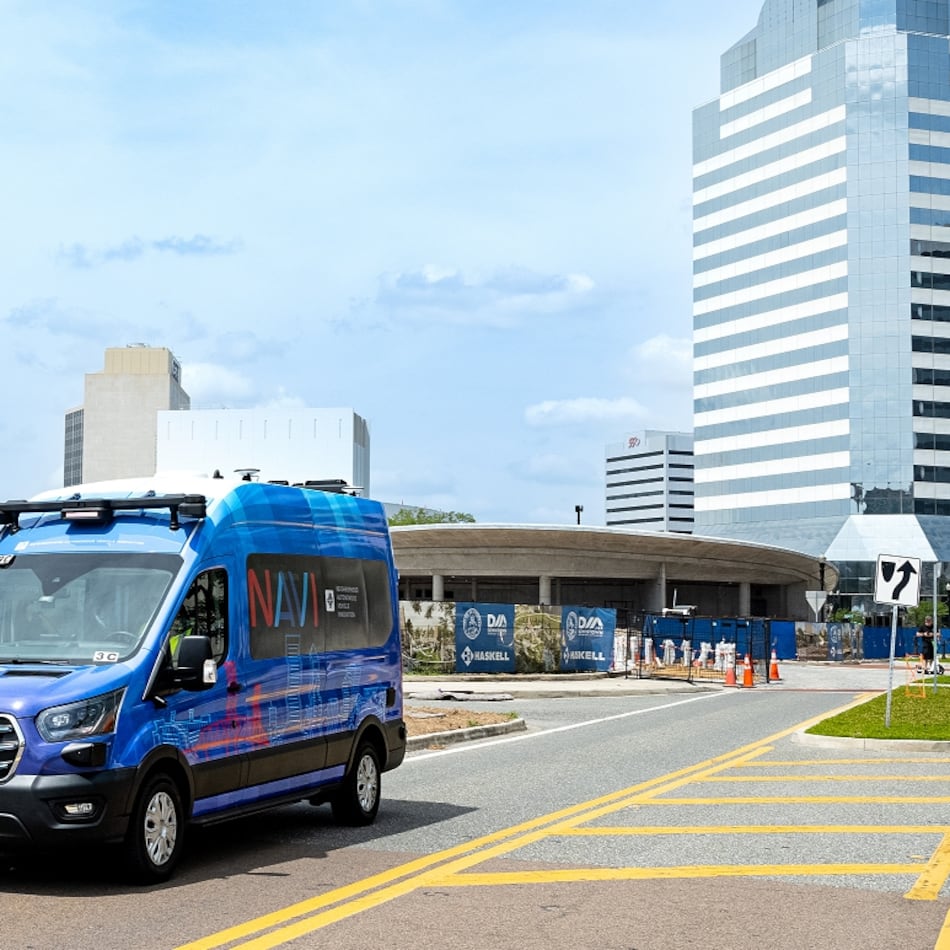It’s said Atlanta influences everything — from fashion to pop culture.
But Atlanta is also the inspiration behind a little-known but important federal minority contracting program that has led to billions of dollars going to small businesses that may have otherwise never had a bite at the apple.
Now, the Trump administration is seeking to end the U.S. Department of Transportation’s 42-year-old disadvantaged business enterprise program, which directs a portion of federal infrastructure funding to minority- or women-owned small businesses.
The federal disadvantaged business enterprise, or DBE, program is intended to help address income inequality, boost employment and use the power of federal spending to broaden the economy.
While the Biden administration had been defending against a lawsuit challenging the program, in recent court filings the Trump administration is seeking to settle and has called the program’s use of race- and sex-based presumptions “unconstitutional.” The Trump administration’s stance builds upon years of efforts to dismantle or weaken various affirmative action programs, including initiatives to boost college admissions of minorities.
The federal DBE initiative can trace its roots back to the Atlanta red clay that was ripe for development in the 1970s.
When then-Mayor Maynard Jackson entered office in 1974 as the city’s first Black mayor, one of his first — and longest-lasting — initiatives was to set an unprecedented 25-35% minority participation requirement for city contracts to rectify a steep inequality that had settled into municipal spending.
The success of Jackson’s minority contracting initiative, and his relationship with then-U. S. Transportation Secretary William Coleman, helped elevate the program’s story to Washington and inspire the federal requirement now in Trump’s crosshairs, Jackson’s widow Valerie Jackson told The Atlanta Journal-Constitution.
Doing away with the federal program would amount to an “effort to turn back the hands of time,” and Jackson’s “blood, sweat and tears” to create “a just and fair process for economic participation would have been in vain,” she said.
Opening city contracts
Before Jackson instituted his program, less than 1% of Atlanta’s municipal contracts were awarded to minority-owned businesses, said Bill Swift, Jackson’s former director of procurement and a current Atlanta airport concessionaire. At the time, 56% of the city was African American.
The 1974 requirements had a dramatic effect on the construction of the new Atlanta airport terminal, which was at the time the largest construction project the state had seen. By 1980, the airport was completed within budget and with a 25% minority-owned business participation rate.
But the impact went beyond the airport. Federal figures on Black businesses from 1972 to 1982 show the number of firms in the metro Atlanta region more than doubled during Jackson’s first two terms.
By 1982, the end of Jackson’s second term, metro Atlanta ranked as one of the top 10 areas in the country by number of Black-owned businesses, with 7,077 firms. Nearly half of all Black firms in the state that year were concentrated in the Atlanta region.
Credit: Lanna Swindler
Credit: Lanna Swindler
A host of minority-owned companies in metro Atlanta can tie their origins or their growth back to airport contracts, from construction contractors like H.J. Russell & Co., to architects to concessions companies.
The DBE program was enough to convince renowned Atlanta architect Oscar Harris to strike out and start his own company. He went on to win contracts for the airport’s atrium, international terminal and canopy.
Atlanta’s minority contracting success also inspired other mayors to “frequently” call Jackson to ask about replicating it, Valerie Jackson said.
Credit: arvin.temkar@ajc.com
Credit: arvin.temkar@ajc.com
Lasting legacy
Today, the airport’s DBE participation goal is nearly 30% — nearly triple the federal requirement for transportation contracts. Its separate non-car rental concessions contracting goal for minority- and women-owned business is closer to 35%.
Hartsfield-Jackson has one of the highest minority participation rates among American airports, General Manager Ricky Smith told the AJC earlier this month.
“It sits in the middle of a culture of equity and inclusion like no other airport in this country,” he said.
Over the last decade, about $1.4 billion of the $5.2 billion, or about 27%, of capital expenditure dollars spent by Hartsfield-Jackson have been awarded to certified small, minority- and women-owned businesses, according to airport figures.
Credit: Miguel Martinez
Credit: Miguel Martinez
For Randy Hazelton, an Atlanta airport concessionaire of 13 years and certified DBE, the program also has fueled Atlanta’s identity in American culture.
The DBE program built more economic equity in Atlanta, which helped make “Atlanta a place where Black people can come and thrive,” Hazelton said.
Credit: arvin.temkar@ajc.com
Credit: arvin.temkar@ajc.com
That in turn has “strengthened Atlanta’s influence on Black culture, and by extension, American culture,” he said.
The city of Atlanta now has its own initiatives separate from the federal DBE program. Its current Equal Business Opportunity participation goal is 35%, which includes a 25% goal for minority firms and a 10% goal for female firms.
It is currently meeting that 35% target, according to Rocsean Spencer, the city’s director of contract compliance.
But some argue Atlanta has not truly picked up Jackson’s mantle.
“In Atlanta, we’re clear that Maynard Jackson’s legacy helped, you know, establish Atlanta as the Black Mecca, as the seat of Black middle-class achievement,” said Alex Camardelle, vice president of policy and research at the nonprofit Kindred Futures.
“And yet we have such poor performance in terms of Black businesses thriving economically and actually building wealth,” he said.
His organization has found that Black small businesses in Atlanta earn 17 cents for every $1 earned by all other small businesses.
Atlanta has the second-lowest economic mobility numbers in the country because of disparities in income, savings and debt, according to an Annie E. Casey Foundation report.
At the federal level, progress has also been slow. In 2021, minority-owned businesses accounted for just 3% of all federal contracts awarded, according to a study conducted by the Biden administration, even though they represented nearly a quarter of those eligible.
Though the federal target is for a minimum of 10% of transportation spending to go to women and minority-owned businesses, between 2012 and 2015, only 2.3% of prime contracting dollars spent by the Georgia Department of Transportation went to those firms, according to a 2016 study.
The figure was higher though for the spending from prime contractors to minority subcontractors, with 17% going to women- and minority-owned firms.
A step back, advocates say
The lawsuit putting the federal target into question was filed by two Indiana-based hauling and milling companies. In a statement after the Trump administration backed down from defending the program, plaintiff Kramer Koetter of Mid-America Milling Company said, “All we want is a level playing field. If my team can put forth the best product or service at a reasonable cost, then we should be rewarded for that.”
But some worry the Trump administration’s move will send the country back decades.
Credit: JOHN SPINK / AJC
Credit: JOHN SPINK / AJC
Though the Trump administration’s move has put the future of the DOT’s program in question, the legal case is still progressing. A consortium of groups is planning to take steps against the administration in court this month.
“We will not stand by while others attempt to quietly unravel decades of progress,” the president and CEO of one of those groups, Eboni Wimbush of the Airport Minority Advisory Council, said in a statement.
But the case is part of a litigation machine that was in place long before Trump entered the White House for a second time. The case that has spawned this move by the administration was filed in October 2023, four months after the Supreme Court case that ended affirmative action in college admissions.
Over the past few years, other lawsuits challenging federal minority contracting programs have forced changes to those initiatives.
Lawsuits against a long-standing program run by the Small Business Administration and the Minority Business Development Agency, which was created in the 1960s to assist minority business owners, have pushed the federal government to change the racial and ethnic presumptions those agencies used to determine who was socially and economically disadvantaged.
Credit: cjuste@miamiherald.com
Credit: cjuste@miamiherald.com
There have been private sector fights, too. The most high-profile was the 2023 lawsuit by a conservative activist against Atlanta-based venture capital firm Fearless Fund, accusing it of racial discrimination because of a grant program it ran for Black small businesswomen. Fearless ended up settling that case and agreeing to end its program, but industry experts say it triggered a chilling effect on many nonprofits, VC firms and corporations.
In Trump, the plaintiffs in cases like these now have a champion. In January, within the first two days after his inauguration, Trump signed multiple executive orders to dismantle what he called “illegal DEI” in the public and private sectors.
Swift, Jackson’s former procurement director, said eliminating the Transportation Department’s disadvantaged business enterprise requirement is “counterproductive.”
“I would not have thought that my sons, my grandchildren, would have to wrestle with that which I wrestled with 50 years ago,” he said, “because I thought we were better than that, that we had moved the needle far enough forward.”
Keep Reading
The Latest
Featured








